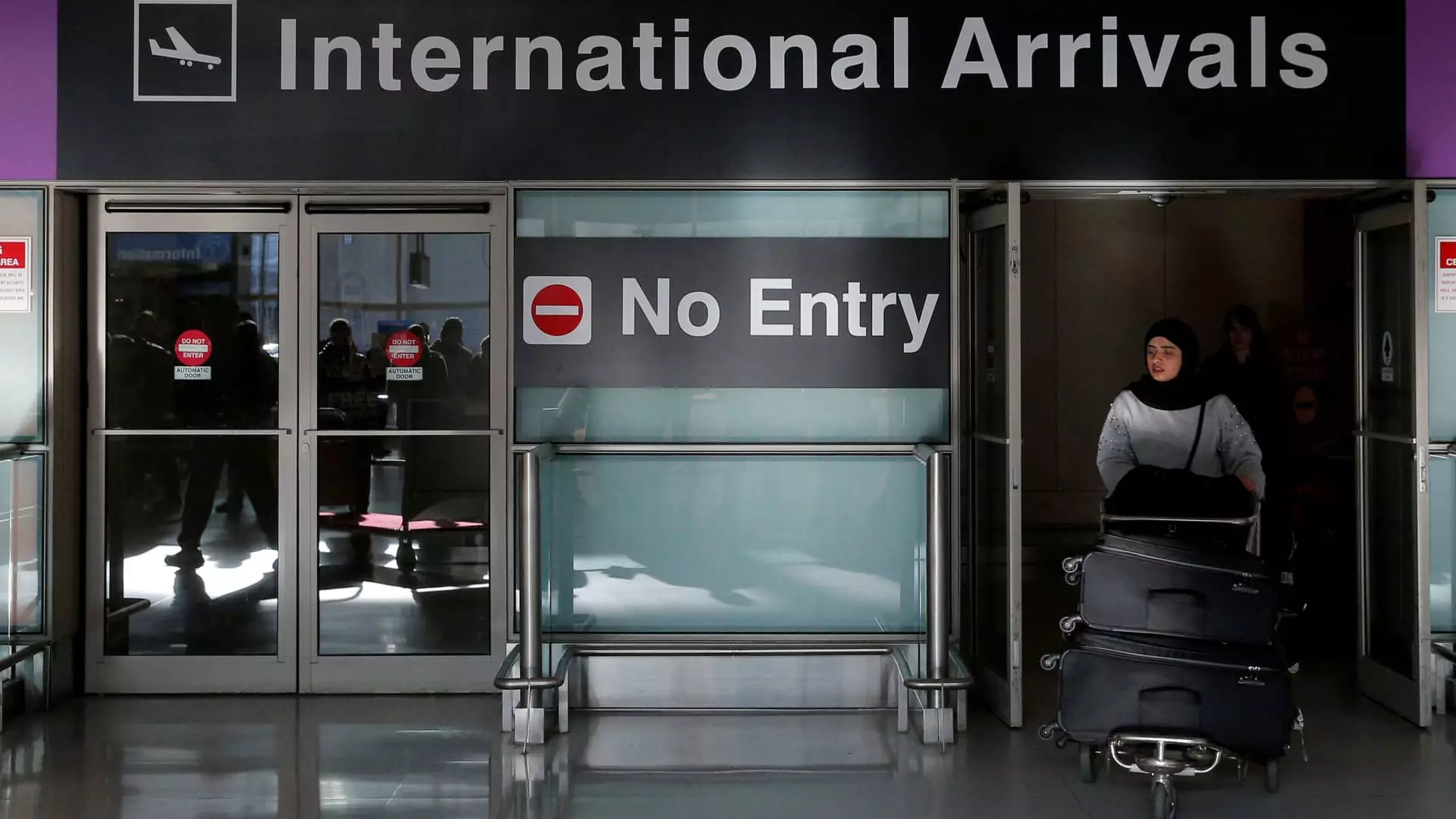In a move reminiscent of historical prejudices, the Trump administration has rolled out a troubling travel ban affecting citizens from 12 predominantly African and Middle Eastern nations. This latest proclamation, born out of a laundry list of unfounded fears and stereotypes, raises significant ethical and humanitarian concerns. Countries such as Afghanistan, Iran, and Sudan have long faced struggles related to war, economic instability, and political turmoil. Yet, rather than offering refuge to those fleeing these dire conditions, the administration’s approach appears more aligned with sowing division than safeguarding national security.
The travel ban, which was signed with alarming speed, attempts to frame itself as a response to legitimate threats. Citing concerns over terrorism and public safety, the proclamation rationalizes its discriminatory nature by claiming those from the aforementioned nations pose significant risks. However, statistics repeatedly show that the vast majority of immigrants, regardless of their origin, are law-abiding and contribute positively to American society. The selective targeting of these specific countries suggests underlying biases and a gross lack of understanding about the complexities of global movements of people.
Exemplifying Fear at the Expense of Humanity
In a striking display of miscalculation, President Trump has wrapped his policies in a cloak of fear. By associating the travel ban with specific incidents of violence, including a tragic terrorist attack in Boulder, Colorado, he exploits public sentiment to justify widespread condemnation of entire nationalities. This tactic resonates with a larger narrative often pushed by xenophobic ideologies and leaves a trail of collateral damage for innocent people seeking a better life. The ugly truth is that fear-mongering, rather than real policy analysis, drives these divisive measures.
Take the case of Elvanise Louis-Juste, a Haitian-American whose heartache reflects the stories of countless others affected by this ban. One cannot simply dismiss her feelings, nor the grim realities faced by her relatives in Haiti, who are enduring violence and unrest. The ban’s critics are right to indicate that this policy, rather than promoting safety, serves only to vilify and isolate communities in need of compassion and protection.
Blindness to Nuance and Complexity
Immigration experts note that this latest ban seems more meticulously devised than the chaotic executive order that preceded it. It lacks the hasty execution that characterized Trump’s earlier efforts but retains a fundamentally flawed logic that centers on a narrow interpretation of national security. The report used to justify the ban relies heavily on data regarding visa overstays, yet fails to address the nuances behind this issue. Countries with high rates of overstays often correlate with socioeconomic struggles, not inherent criminality.
Moreover, the ban disregards the historical context of migration patterns that speak to deeper global injustices. Political instability, climate change, and economic desperation cannot be solved by simply closing doors — they require cooperative policy-making and humanitarian strategies. By choosing isolation over engagement, the administration is neglecting the opportunity to foster international alliances that can address the root causes of migration.
A Call for Compassion in Policy-making
As we examine the implications of Trump’s travel ban, it becomes abundantly clear that the true goals appear to stray far from genuine national safety. Rather, they underscore a system rooted in xenophobia and a troubling unwillingness to acknowledge the shared humanity that connects us all. Humanitarian organizations have correctly condemned the ban, warning that it is not just a political maneuver but a destructive doctrine that leads to more profound human suffering.
Leaders from around the world, including those in Venezuela, have denounced the implications of the travel ban. Their warnings resonate beyond borders, highlighting a systemic problem that treats entire populations with a level of disdain that fails to recognize their dignity. In this age of globalization, where challenges are complex and interconnected, a policy that promotes walls rather than bridges does not and will not stand the test of time. A commitment to inclusion and understanding is essential, as it is through compassion and cooperation that we can truly forge a safer and more just world.


Leave a Reply